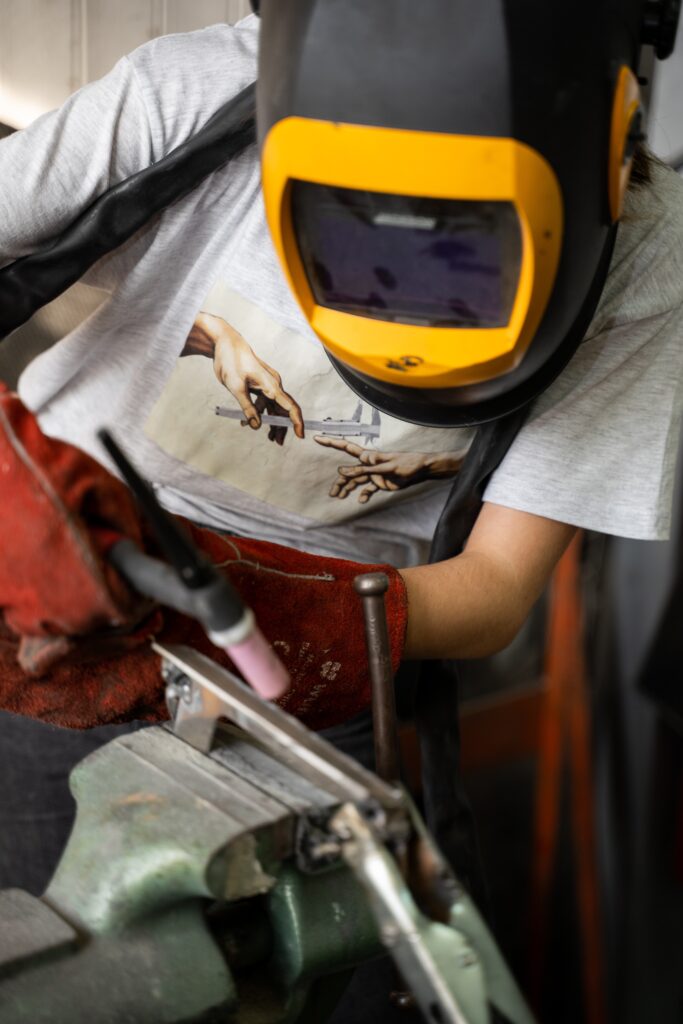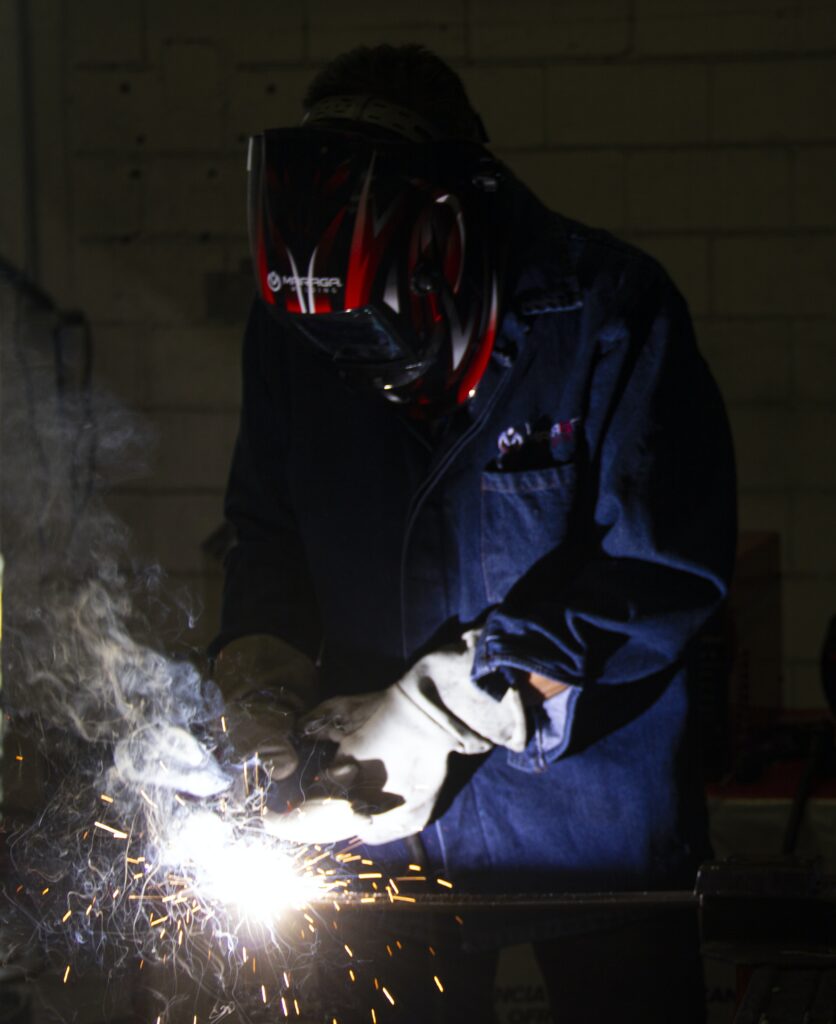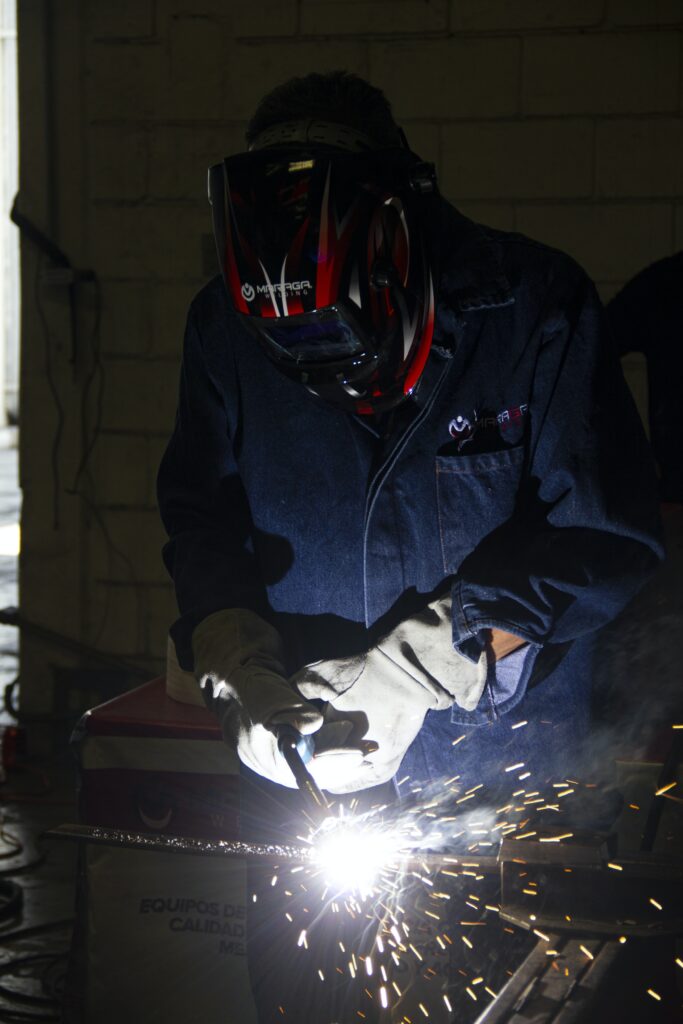If you’ve ever wondered whether you could actually get an apprenticeship in welding, you’re in the right place. This piece is tailored specifically for you, filled with useful knowledge on the topic. It’s all about helping you understand what type of training is involved in this skilled trade, how you can pursue it, and the many doors it can open up for you in the industrial world. From the types of programs available to the substantial benefits such programs offer, this article has got you covered! So, let yourself be informed and inspired as you engage in your journey of exploration into the world of welding apprenticeships.

Understanding Apprenticeships
Definition of an Apprenticeship
An apprenticeship is an organized and structured program where you get to acquire specific technical skills and knowledge in a particular field or trade. It involves a hands-on learning experience, which aims to create a proficient and well-rounded professional. Apprenticeships are facilitated under the guidance of skilled mentors, where you learn by doing, not just studying.
The Role of an Apprenticeship in Learning a Trade
Apprenticeships play a vital role in learning a trade. They bridge the gap between academic knowledge and practical experience, as concepts learned in the classroom are applied in real-world environments. Apprenticeships also impart invaluable skills that only work-based training can provide. You get to learn from professionals who are already established in the field, benefitting from their experience, and starting your career on solid ground.
Welding As A Trade
Understanding the Welding Trade
Welding is a fabrication process that involves joining materials, usually metals or thermoplastics, together. You manipulate an intense heat source to fuse parts together, creating a strong and secure bond. Welding is a multifaceted trade requiring an understanding of engineering and metallurgy, as well as hands-on skills.
The Importance and Applications of Welding in Various Industries
Welding is a crucial part of many industries—automotive, construction, shipbuilding, aerospace, and more. Anything from cars to skyscrapers relies on welding for their assembly and construction. Its versatility makes welding an in-demand skill with myriad applications.

Apprenticeship Opportunities in Welding
Popular Welding Apprenticeship Programs
There are various welding apprenticeship programs available, each offering unique focuses depending on the industry needs. Examples can range from maritime welding apprenticeships focusing on shipbuilding techniques, to advanced welding apprenticeships that dabble in more complex, precision-required processes.
Application Process for a Welding Apprenticeship
The application process for a welding apprenticeship usually involves submitting proof of education, undergoing a practical skill test, and an interview. Some programs may require specific prerequisites such as a high school diploma or a grounding in specific math or science subjects.
Skills Developed During Welding Apprenticeship
Technical Skills Gained
A welding apprenticeship will equip you with crucial technical skills. You’ll learn about various welding techniques, reading blueprints, understanding different materials and their properties, and how to maintain and operate welding machinery.
Soft Skills Learned
Beyond the technical knowledge, you’ll also develop essential soft skills such as problem-solving abilities, effective communication, and teamwork skills. These are vital for collaborative projects and in dealing with clients and colleagues alike.
Understanding and Implementation of Safety Measures
Safety is paramount in the welding trade. An apprenticeship will instill a strong understanding of safety protocols to minimize risk in the workplace. This includes handling equipment correctly, using protective gear, and understanding emergency procedures.

Duration and Structure of Welding Apprenticeship
Common Duration of Welding Apprenticeships
Typically, welding apprenticeships can take anywhere from 3 to 5 years to complete. This depends on the program’s complexity, the area of specialization, and the apprentice’s pace of learning.
Breakdown of Theory, Practice, and Mentoring
A welding apprenticeship is generally broken down into theory, practice, and mentoring. You will spend time in a classroom environment, understanding the scientific concepts behind welding. Alongside this, you’ll work hands-on under the supervision of your mentor, honing your practical skills. Mentoring focuses on facilitating your growth as a professional by passing down long-proven techniques and advice.
Career Growth and Opportunities Post-Apprenticeship
Potential Jobs After Apprenticeship
After completing your welding apprenticeship, you are ready to apply for jobs such as a welding technician, welding engineer, or fabricator to name just a few examples. Additionally, you may opt for specialization in areas like underwater welding or aerospace welding, depending on where your interests lie.
Career Progression in Welding Field
Career progression in the welding field is determined by your experience, repertoire of skills, and willingness to continue learning. You can work your way up in an organization or choose to branch out as an independent contractor or consultant.
Income Expectations from Welding Apprenticeships and Beyond
Salary Range During Apprenticeship
When you start as an apprentice, your wages may be on the lower end of the scale. However, as you develop your skills and build your experience, this can increase significantly.
Income Potential Post-Apprenticeship
Post-apprenticeship, your income potential improves dramatically. You can command competitive salaries, especially if you specialize in a niche area of welding.
Challenges in Welding Apprenticeships
Physical Demands of Welding
Welding can be physically demanding. The job may require you to lift heavy loads, operate complex machinery, and stand for extended periods.
Safety Risks and How They are Mitigated
There are safety risks inherent to welding, such as exposure to extreme heat or the risk of eye damage from bright sparks. These risks are mitigated by the use of appropriate personal protective equipment (PPE) and adherence to safety protocols.
The Need for Continuous Learning and Upgrading of Skills
With advancements in technology, the welding industry is constantly evolving. As such, there is a continuous need for learning and the upgrading of skills. Staying up-to-date is vital to remaining relevant and competitive in the field.
Benefits of Enrolling in a Welding Apprenticeship
Gaining Hands-On Experience
As mentioned earlier, an apprenticeship allows you to gain hands-on experience and learn while working. It provides the opportunity to apply theoretical concepts in practical settings under expert guidance.
Mentorship Benefits
Mentorship is an invaluable part of the apprenticeship. The knowledge and skills passed down from an experienced welder can significantly improve your understanding of the trade and enhance your problem-solving abilities.
Opportunities for Learning Diverse Welding Techniques
Apprenticeships hold the advantage of exposing you to various welding techniques and disciplines. These experiences will make you a multifaceted professional, capable of tackling different jobs.
Conclusion: Is Welding Apprenticeship for you?
Self-Evaluation for Prospective Apprentices
If you’re considering a welding apprenticeship, take stock of your interests and strengths. Are you good with your hands? Do you enjoy creating? Do you have the patience to learn and perfect a craft over time? If the answer is yes, then a welding apprenticeship could be a fantastic opportunity for you.
Factors to Consider Before Applying
Before plunging in, consider the commitment required. Apprenticeships demand dedication and hard work. Additionally, think about the physical nature of the work and safety aspects. It’s equally important to research programs thoroughly, vetting their reputation and what they have to offer.
Seeking Advice from Experienced Professionals in the Field
Speak to professionals who have undergone apprenticeships themselves. They are in the best position to provide you with an accurate picture of what the apprenticeship and subsequent professional life will entail.
In answer to the question: Can you do an apprenticeship in welding? Absolutely! With commitment, the right mindset, and a dedication to learning, you can successfully complete a welding apprenticeship and embark on a rewarding career in the trade.
